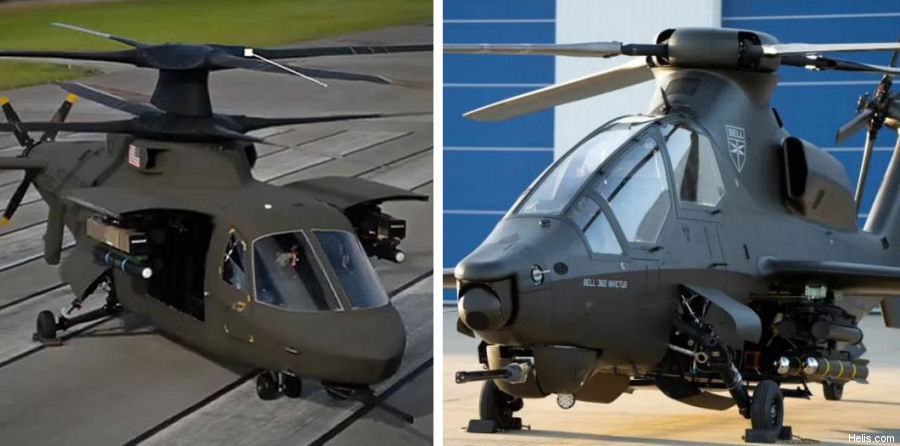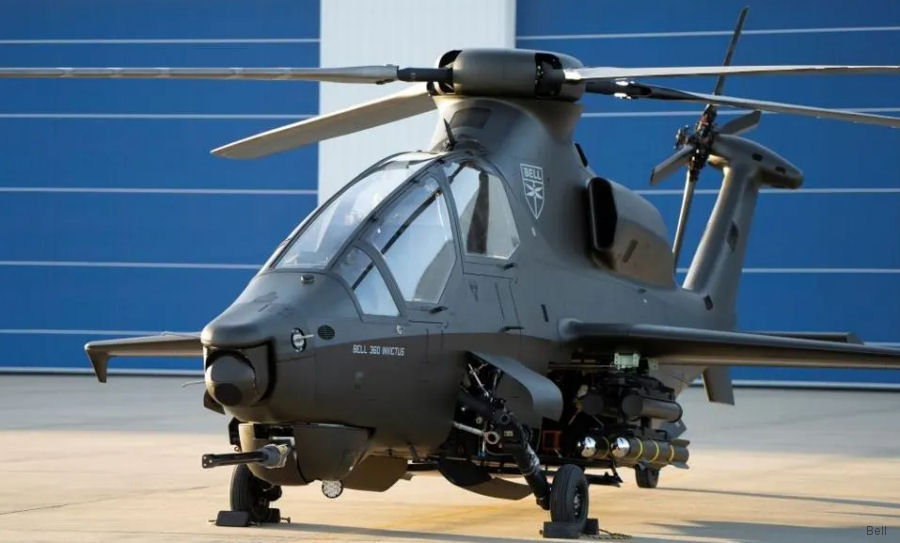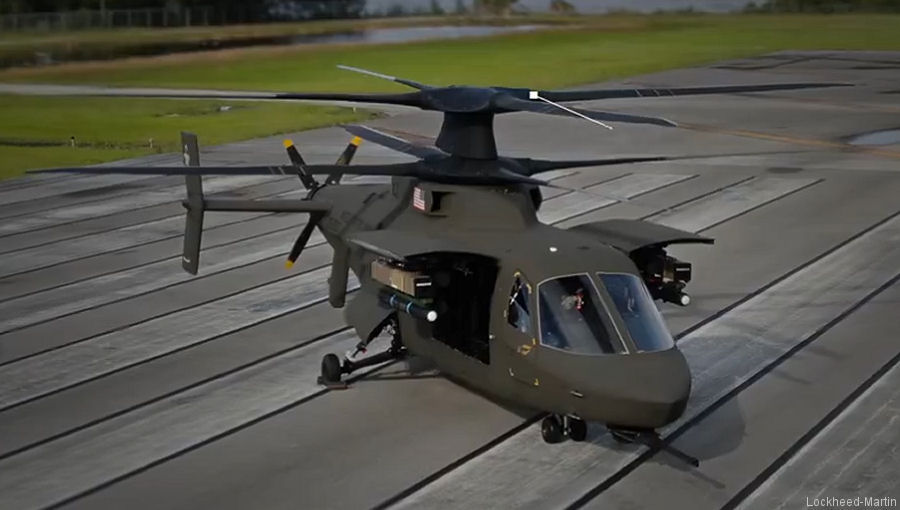
US Army, February 11, 2024 - Warfighting is changing more rapidly than it has in decades, and the Army is continuously transforming based on lessons learned and a sober assessment of the modern battlefield.
To meet emerging capability requirements in a resource constrained environment, the Army announced it will rebalance its aviation modernization investments across new and enduring platforms.
The Army will discontinue development of the Future Attack and Reconnaissance Aircraft at the conclusion of prototyping activities while continuing investment in the Future Long Range Assault Aircraft, and making new investments in UH-60 Black Hawk, and CH-47F Block II Chinook. The Army will also phase out operations of systems that are not capable or survivable on today’s battlefield including the Shadow and Raven unmanned aircraft systems.
The Army will increase investments in cutting-edge, effective, capable and survivable unmanned aerial reconnaissance capabilities and the procurement of commercial small unmanned systems. These investments will be continuous and agile to stay ahead of emerging battlefield requirements.
Christine Wormuth, Secretary of the Army said “The Army is deeply committed to our aviation portfolio and to our partners in the aviation industrial base. These steps enable us to work with industry to deliver critical capabilities as part of the joint force, place the Army on a sustainable strategic path, and continue the Army’s broader modernization plan which is the service’s most significant modernization effort in more than four decades.”

Bell 360 Invictus prototype
General Randy George, Chief of Staff of the Army said “We are learning from the battlefield—especially in Ukraine—that aerial reconnaissance has fundamentally changed. Sensors and weapons mounted on a variety of unmanned systems and in space are more ubiquitous, further reaching, and more inexpensive than ever before. I am confident the Army can deliver for the Joint Force, both in the priority theater and around the globe, by accelerating innovation, procurement and fielding of modern unmanned aircraft systems, including the Future Tactical Unmanned Aircraft System, Launched Effects, and commercial small unmanned aircraft systems.”
As part of this transformational rebalancing, the Army will:
- End development of the Army’s new manned reconnaissance helicopter, the Future Attack and Reconnaissance Aircraft (FARA), at the conclusion of FY24 prototyping activities.
- End production of the UH-60V version of the Black Hawk, which extends service life of existing airframes by 10 years, after FY24 due to significant cost growth.
- Delay entering production of the Improved Turbine Engine (ITEP) to ensure adequate time to integrate it with AH-64 and UH-60 platforms.
- Phase out operations and sustainment of the legacy Shadow and Raven unmanned aircraft systems.
These decisions free up resources to make critical new investments in Army aviation. Going forward, the Army will:
- Commit to a new multi-year contract to procure the UH-60M Black Hawk helicopter – a new airframe with a 20+ year service life – and invest in upgrades for the Black Hawk.
- End uncertainty over the future of the CH-47F Block II Chinook by formally entering it into production, with a path to full rate production in the future.
- Continue the Future Long Range Assault Aircraft (FLRAA) program as planned, ensuring the Army remains on a path to field the first operational unit in FY30.
- Increase investments in research and development to expand and accelerate the Army’s unmanned aerial reconnaissance capability including future tactical unmanned aerial systems and launched effects.
In reviewing the FARA program in light of new technological developments, battlefield developments and current budget projections, Army leaders assessed that the increased capabilities it offered could be more affordably and effectively achieved by relying on a mix of enduring, unmanned, and space-based assets.
Moreover, without reprioritizing funds in its constrained aviation portfolio, the Army faced the unacceptable risk of decline and closure of production and sustainment lines for the Chinook and Black Hawk fleets. The Army’s new plan will renew and extend production of both aircraft, while also sustaining the experienced workforce and vendor base that underpin the Army’s aviation capabilities.

Sikorsky Raider X prototype
Although Army leadership had to make difficult tradeoffs between programs, this plan will allow the Army to continue building modern capability across its aviation portfolio while funding other critical priorities in future budgets.
The Army remains committed to its most ambitious modernization effort in more than 40 years, which has seen significant successes such as the recent delivery and fielding of the Mid-Range Capability, M-10 Booker, Next Generation Squad Weapon, Armored Multipurpose Vehicle, Integrated Air and Missile Defense, Precision Strike Missile, Mounted and Dismounted Assured PNT, Maneuver-Short Range Air Defense, Lower Tier Air and Missile Defense Sensor, Enhanced Night Vision Goggle-Binocular, and entering the engineering and manufacturing development phase for FLRAA.
To meet emerging capability requirements in a resource constrained environment, the Army announced it will rebalance its aviation modernization investments across new and enduring platforms.
The Army will discontinue development of the Future Attack and Reconnaissance Aircraft at the conclusion of prototyping activities while continuing investment in the Future Long Range Assault Aircraft, and making new investments in UH-60 Black Hawk, and CH-47F Block II Chinook. The Army will also phase out operations of systems that are not capable or survivable on today’s battlefield including the Shadow and Raven unmanned aircraft systems.
The Army will increase investments in cutting-edge, effective, capable and survivable unmanned aerial reconnaissance capabilities and the procurement of commercial small unmanned systems. These investments will be continuous and agile to stay ahead of emerging battlefield requirements.
Christine Wormuth, Secretary of the Army said “The Army is deeply committed to our aviation portfolio and to our partners in the aviation industrial base. These steps enable us to work with industry to deliver critical capabilities as part of the joint force, place the Army on a sustainable strategic path, and continue the Army’s broader modernization plan which is the service’s most significant modernization effort in more than four decades.”

Bell 360 Invictus prototype
General Randy George, Chief of Staff of the Army said “We are learning from the battlefield—especially in Ukraine—that aerial reconnaissance has fundamentally changed. Sensors and weapons mounted on a variety of unmanned systems and in space are more ubiquitous, further reaching, and more inexpensive than ever before. I am confident the Army can deliver for the Joint Force, both in the priority theater and around the globe, by accelerating innovation, procurement and fielding of modern unmanned aircraft systems, including the Future Tactical Unmanned Aircraft System, Launched Effects, and commercial small unmanned aircraft systems.”
As part of this transformational rebalancing, the Army will:
- End development of the Army’s new manned reconnaissance helicopter, the Future Attack and Reconnaissance Aircraft (FARA), at the conclusion of FY24 prototyping activities.
- End production of the UH-60V version of the Black Hawk, which extends service life of existing airframes by 10 years, after FY24 due to significant cost growth.
- Delay entering production of the Improved Turbine Engine (ITEP) to ensure adequate time to integrate it with AH-64 and UH-60 platforms.
- Phase out operations and sustainment of the legacy Shadow and Raven unmanned aircraft systems.
These decisions free up resources to make critical new investments in Army aviation. Going forward, the Army will:
- Commit to a new multi-year contract to procure the UH-60M Black Hawk helicopter – a new airframe with a 20+ year service life – and invest in upgrades for the Black Hawk.
- End uncertainty over the future of the CH-47F Block II Chinook by formally entering it into production, with a path to full rate production in the future.
- Continue the Future Long Range Assault Aircraft (FLRAA) program as planned, ensuring the Army remains on a path to field the first operational unit in FY30.
- Increase investments in research and development to expand and accelerate the Army’s unmanned aerial reconnaissance capability including future tactical unmanned aerial systems and launched effects.
In reviewing the FARA program in light of new technological developments, battlefield developments and current budget projections, Army leaders assessed that the increased capabilities it offered could be more affordably and effectively achieved by relying on a mix of enduring, unmanned, and space-based assets.
Moreover, without reprioritizing funds in its constrained aviation portfolio, the Army faced the unacceptable risk of decline and closure of production and sustainment lines for the Chinook and Black Hawk fleets. The Army’s new plan will renew and extend production of both aircraft, while also sustaining the experienced workforce and vendor base that underpin the Army’s aviation capabilities.

Sikorsky Raider X prototype
Although Army leadership had to make difficult tradeoffs between programs, this plan will allow the Army to continue building modern capability across its aviation portfolio while funding other critical priorities in future budgets.
The Army remains committed to its most ambitious modernization effort in more than 40 years, which has seen significant successes such as the recent delivery and fielding of the Mid-Range Capability, M-10 Booker, Next Generation Squad Weapon, Armored Multipurpose Vehicle, Integrated Air and Missile Defense, Precision Strike Missile, Mounted and Dismounted Assured PNT, Maneuver-Short Range Air Defense, Lower Tier Air and Missile Defense Sensor, Enhanced Night Vision Goggle-Binocular, and entering the engineering and manufacturing development phase for FLRAA.
See also |
FLRAA >
Sikorsky Raider X
Bell 360 Invictus
General Electric T901
Boeing CH-47F Block II
Sikorsky UH-60V Black Hawk




